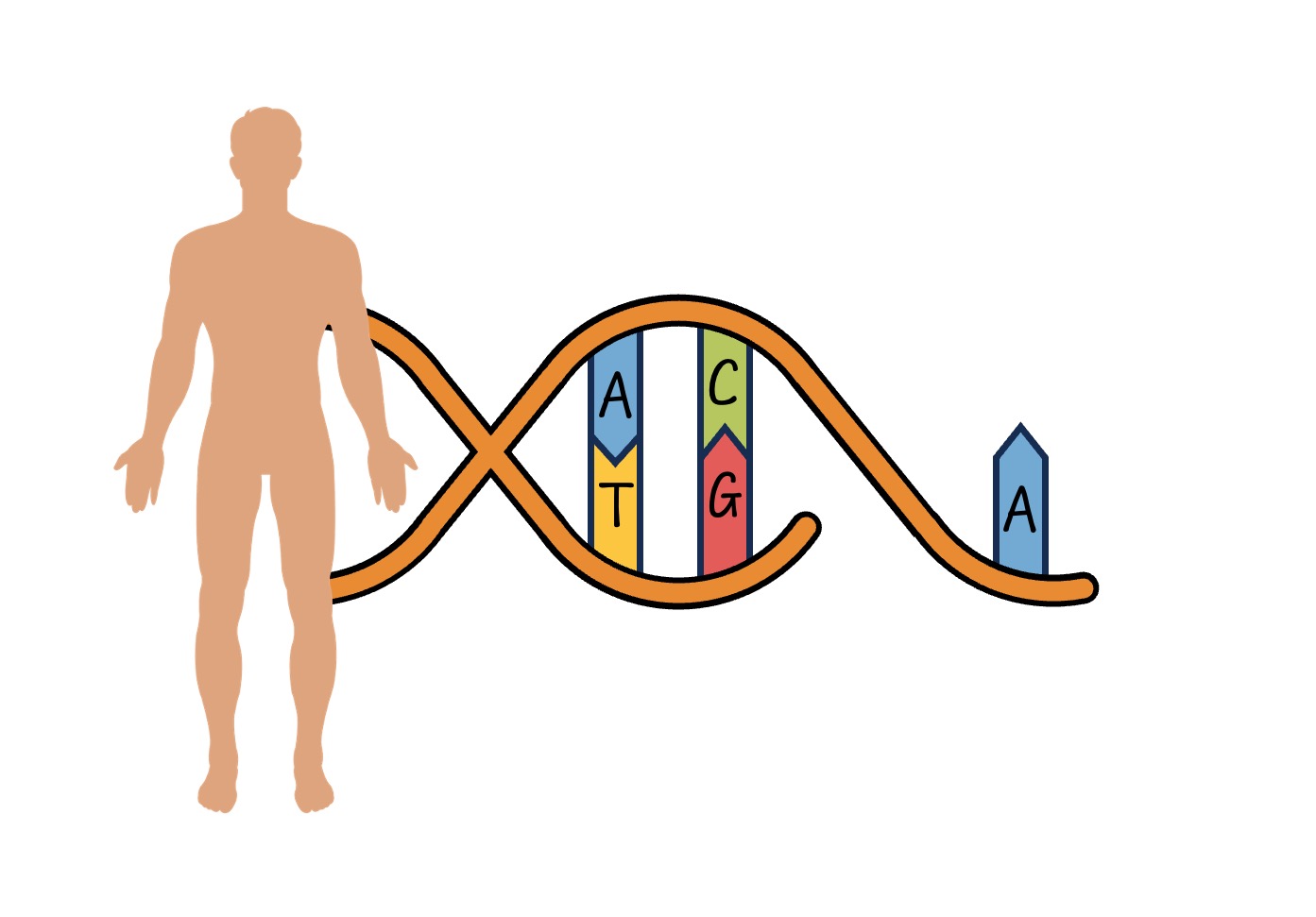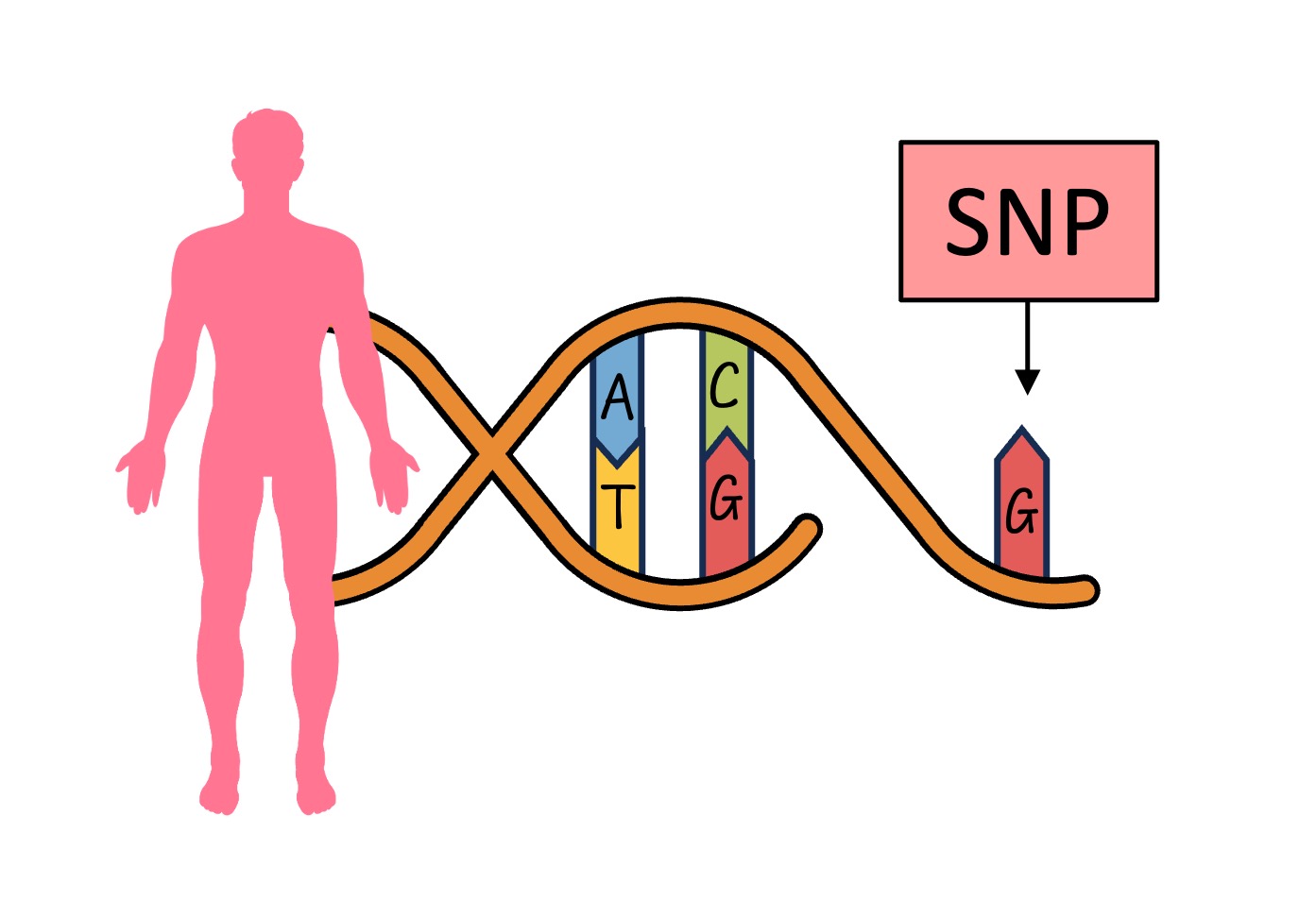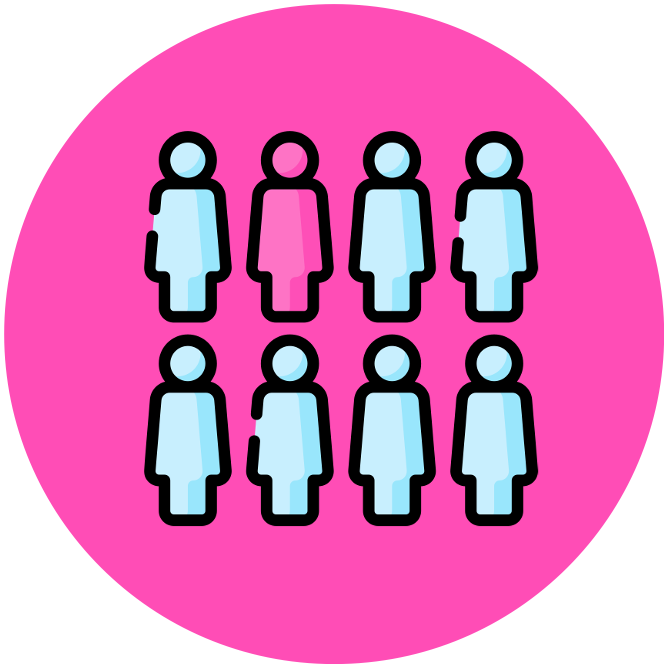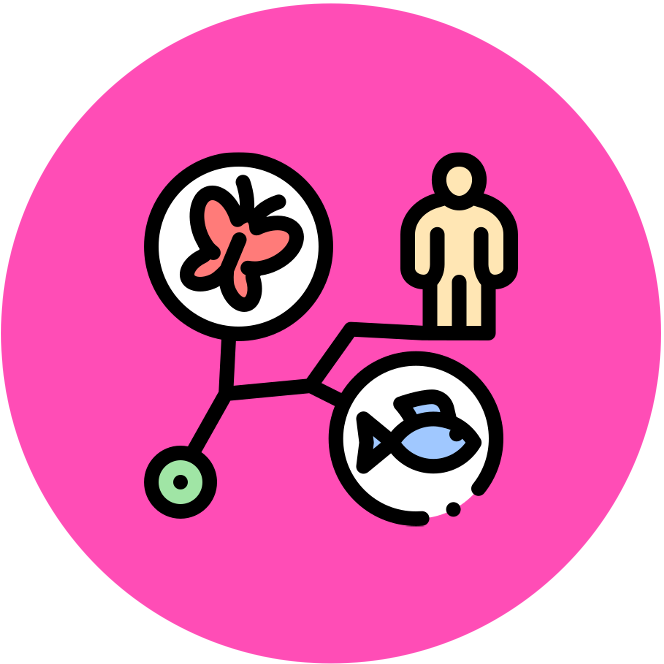

Sequencing
Organisms in the same species share most of their genome but variations in alleles give some diversity
-
In most cases, different alleles will only vary from one another by one or only a few bases
A single nucleotide polymorphism (SNP) is a mutation to a single nucleotide base that is present in a sufficiently large proportion of the population (typically >1%)
-
By identifying all SNPs within the genome, a unique genetic profile can be made for any individual
SNP Mutation

General Population

Single Nucleotide Polymorphism
Whole Genome Sequencing
Whole genome sequencing is the process of determining the DNA sequence of an organism's entire genome at a single time
-
As almost every cell in the body contains the full complement of the organism’s DNA, even a small amount of biological sample (saliva, hair, etc.) can be used for sequencing
The two main applications of whole genome sequencing are to provide genealogical information and identify any mutations that could cause health problems
-
Genealogical data can be used to determine ancestral relationships and map individual pedigrees
-
Health data can be used to predict disease predispositions and develop personalised medicines (via pharmacogenomics)
The information provided by whole genome sequencing is also important for public health responses since it can be used to guide epidemiological interventions for different population groups




